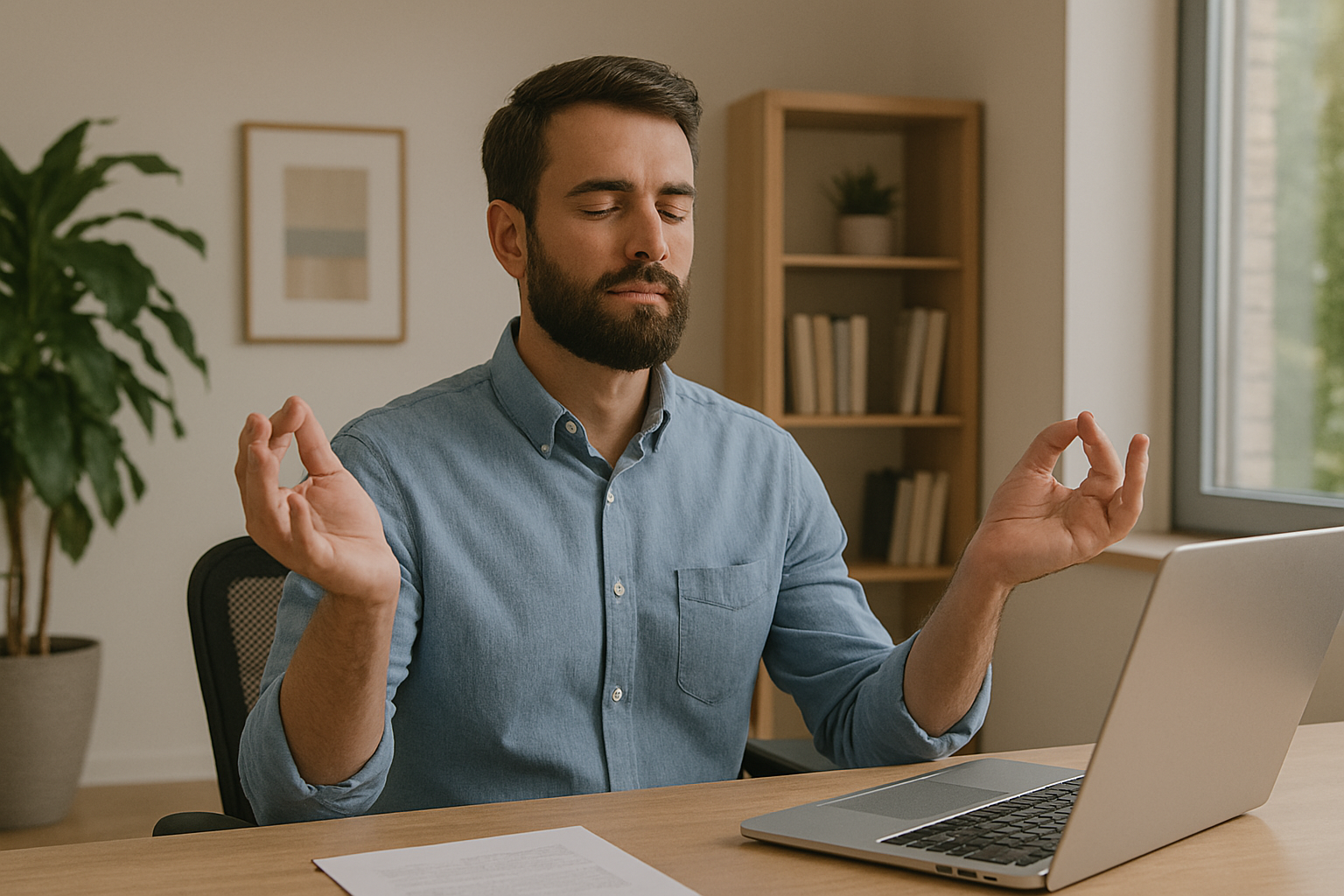In today’s fast-paced world, it’s easy to feel overwhelmed, distracted, and stressed. Whether you’re juggling work, studies, family, or personal goals, maintaining emotional balance and mental clarity is essential. The good news? You don’t need complicated solutions. A few small changes in your daily routine can significantly reduce stress and boost your ability to concentrate.
Let’s explore simple, practical techniques you can start using today to take better care of your mind and stay focused on what truly matters.
1. Understand the Link Between Stress and Focus
When you’re stressed, your brain shifts into survival mode—making it harder to think clearly, make decisions, or stay focused. Chronic stress can lead to:
- Mental fatigue
- Difficulty concentrating
- Irritability or anxiety
- Sleep issues
- Reduced productivity
Learning to manage stress isn’t just about feeling calmer—it’s about functioning better in every area of your life.
2. Start With Conscious Breathing
Deep breathing is one of the fastest and most effective ways to calm the nervous system. It increases oxygen flow to the brain and signals the body that it’s safe to relax.
Try this simple technique:
- Inhale slowly through your nose for 4 seconds
- Hold for 4 seconds
- Exhale gently through your mouth for 6 seconds
- Repeat for 1–3 minutes
Practice this when you feel anxious, before a meeting, or even during short breaks.
3. Use the “5-4-3-2-1” Grounding Technique
This sensory technique helps reduce anxiety and sharpen focus by bringing your attention back to the present moment. Try it when your mind feels scattered.
Name:
- 5 things you can see
- 4 things you can touch
- 3 things you can hear
- 2 things you can smell
- 1 thing you can taste
This mindful pause helps quiet racing thoughts and refocus your attention.
4. Practice “Single-Tasking”
Multitasking is tempting, but it often leads to mental overload and stress. Instead, focus on one task at a time.
Tips:
- Turn off non-essential notifications
- Use a timer (like the Pomodoro technique: 25 minutes focus + 5 minutes rest)
- Write down tasks instead of keeping them in your head
- Prioritize the 3 most important things to do each day
You’ll get more done—and feel less stressed doing it.
5. Take Regular Mental Breaks
Your brain needs rest to stay sharp. Working for hours without a break leads to burnout and poor focus. Schedule short breaks throughout the day to:
- Stretch or walk
- Drink water
- Look outside or change your environment
- Do light breathing or meditation
Even 5 minutes can reset your energy.
6. Incorporate Light Movement
Physical activity releases endorphins, lowers cortisol (the stress hormone), and improves concentration.
You don’t need to hit the gym—just:
- Take the stairs
- Stretch at your desk
- Walk while on a phone call
- Do 5 minutes of yoga or jumping jacks between tasks
Movement clears mental fog and improves emotional balance.
7. Try Journaling to Declutter the Mind
Writing down your thoughts can be incredibly therapeutic. It helps you organize your feelings, track stress triggers, and set intentions.
Start with:
- 5 minutes each morning or evening
- A gratitude list
- A brain dump (write anything on your mind)
- Setting a focus for the day
This habit reduces anxiety and increases mental clarity.
8. Protect Your Sleep
Lack of sleep makes stress worse and concentration harder. Prioritize quality rest by:
- Avoiding screens 1 hour before bed
- Creating a relaxing bedtime routine
- Keeping a regular sleep schedule
- Making your room cool, dark, and quiet
Sleep is fuel for your brain—and essential for emotional balance.
9. Try Mindfulness or Meditation
Mindfulness doesn’t have to mean sitting silently for an hour. Even a few minutes of stillness can:
- Calm your mind
- Improve your mood
- Sharpen focus
Start with:
- A guided meditation app
- Focusing on your breath for 3 minutes
- Mindfully drinking tea or taking a walk
Consistency is more important than duration.
Take Control of Your Mental Space
Stress is part of life—but how you respond to it makes all the difference. By applying simple habits like conscious breathing, single-tasking, movement, and mindful breaks, you can reduce daily stress and stay mentally clear.
Start with one or two of these techniques today. Your mind, your body, and your productivity will thank you.
